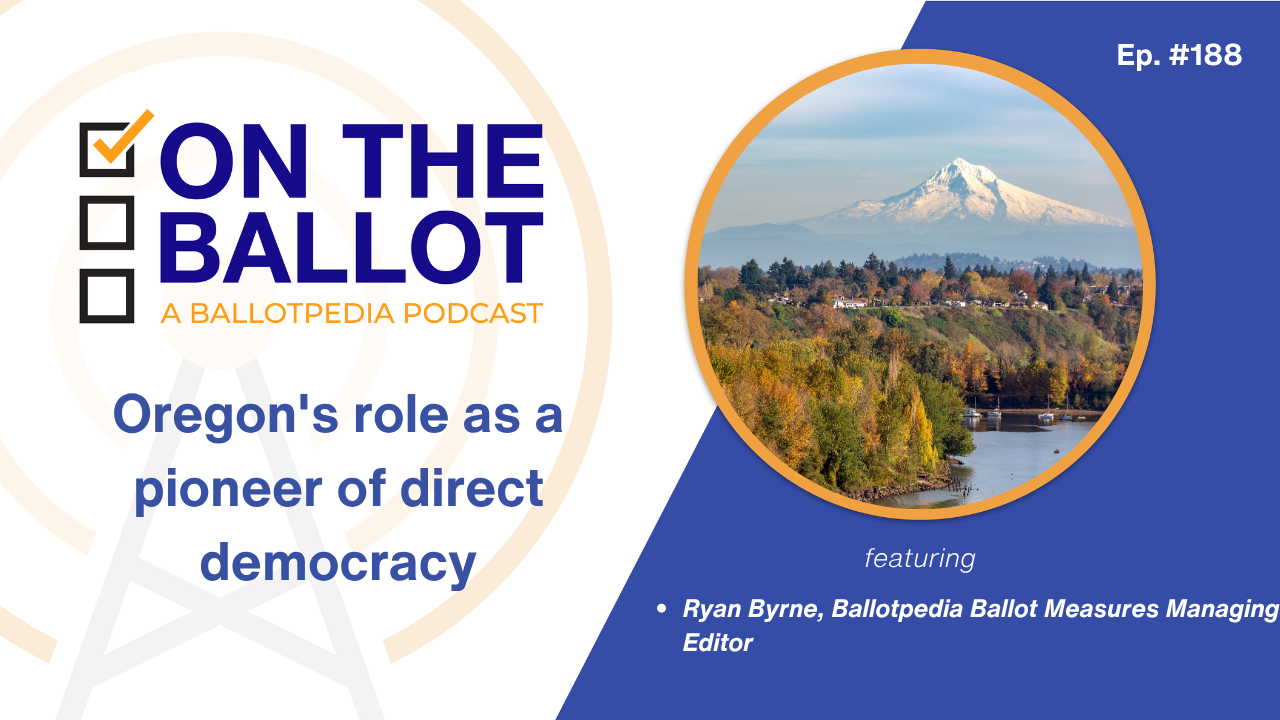Tag: oregon
-
Oregon governor signs ESG investing law

Oregon Gov. Tina Kotek (D) signed the Climate Resilience Investment Act on June 26, directing the state’s $96 billion Public Employees Retirement System to study the effects of its investments on climate change and to “pursue the goal of reducing the carbon intensity of the fund.” The law is among the first to directly require…
-
Oregon joins 45 other states in allowing the governor to make appointments to vacant U.S. Senate seats

On June 20, 2025, Oregon Gov. Tina Kotek (D) signed Senate Bill 952 (SB 952), which gives the governor the power to appoint an interim U.S. senator for the state if a vacancy occurs. The bill includes the following provisions: In 36 states, governors appoint individuals to fill vacancies temporarily until a special election. The…
-
Federal judge declares Oregon cannabis union law unconstitutional, overturning the 2024 ballot measure

Oregon Measure 119, which was approved by voters in November 2024, was overturned by a federal judge on May 20, 2025. District Judge Michael H. Simon issued an opinion holding that the ballot measure violates the U.S. Constitution and the National Labor Relations Act (NLRA) by limiting employers’ right to free speech. Measure 119, which…
-
Oregon’s role as a pioneer of direct democracy

Episode #188 Oregon’s role as a pioneer of direct democracy On this episode: Oregon’s long and lively ballot measure history takes center stage as we explore how the state became a pioneer in direct democracy. With more initiatives than nearly any other state, Oregon has tackled everything from salmon fishing rules and death penalty debates…
-
Oregon Senate passes bill to extend unemployment benefits to striking public workers

The Oregon Senate passed legislation on March 21, 2025, that would make Oregon the first state to offer unemployment insurance (UI) compensation to strikers in both the public and private sectors. If SB 916 is passed by the House and signed by Governor Tina Kotek (D), workers like teachers and nurses would become eligible for…
-
Oregon voters have defeated more ballot measures than they have approved since 1900

Ballotpedia completed an inventory of all Oregon ballot measures since 1900. Oregon voters decided on 881 ballot measures between 1900 and 2024—defeating over 53% of them. Four hundred eleven (411) measures were approved, and four hundred seventy (470) measures were defeated. Of the 881 ballot measures, 14 were decided by less than a percentage point…
-
Seven presidential tickets will appear on the ballot in Oregon this November

Oregon’s Nov. 5, 2024, general election ballot will feature seven presidential candidates and their running mates. They are: Robert F. Kennedy Jr., running as an independent, withdrew from the presidential election in August, but will still appear on Oregon’s ballot as the We the People party’s presidential nominee. Randall Terry’s national running mate is Stephen…
-
Eighteen candidates are running in the general election for mayor of Portland on Nov. 5

Eighteen candidates are running in the nonpartisan election for mayor of Portland on November 5, 2024. Five candidates—Rene Gonzalez, Mingus Mapps, Liv Osthus, Carmen Rubio, and Keith Wilson—lead in media attention, polls, and campaign finance. The Portland mayoral election is nonpartisan. Incumbent Ted Wheeler is affiliated with the Democratic party. Click here to read more…
-
Six candidates are running in the general election for Oregon’s 5th Congressional District on Nov. 5
Six candidates are running in the general election for Oregon’s 5th Congressional District on Nov. 5, 2024. Incumbent Rep. Lori Chavez-DeRemer (R) and Janelle Bynum (D) lead in endorsements, campaign finance, and media attention. This third rematch between Chavez-DeRemer and Bynum will take place in a district that Joe Biden (D) won by 8.8 percentage…
-
Incumbent Andrea Salinas (D) and Mike Erickson (R) are running in the general election for OR-06

Incumbent Andrea Salinas (D) and Mike Erickson (R) are running in the general election for Oregon’s 6th Congressional District on Nov. 5, 2024. The race is a rematch from 2022, when Salinas defeated Erickson 50.1% to 47.7%. This the second general election in the district’s existence. It became the state’s first new district in 40…

